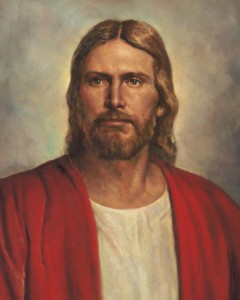If you were to ask me what the greatest problem among mankind is, there would be many to choose from. But, I think many of them stem from a simple human frailty. There is something about our nature that compels us to compare ourselves to each other. This becomes a serious problem for many that can lead to low self-esteem, to be overly concerned with appearances both physical and material, to feed some with thoughts and acts of theft and violence. It creates a great amount of poison from seemingly harmless thoughts of comparison. The problem becomes that “as a man thinketh, so is he.”
 We worry about what other people think, we worry that we are somehow inferior to them, that their life is somehow easier or better than our own. Sometimes we worry about it so much we seek out those that we feel we can be better than until we convince ourselves we are superior rather than inferior. We compare. We judge. We’re miserable because of it, but it becomes an addiction. Perhaps that’s why the Savior spent so much time telling us to “judge not”. The more time we spend consumed in negative thinking, about ourselves or others, the less of our hearts are available to feel the Savior’s love for us. The less we are able to see ourselves as He sees us.
We worry about what other people think, we worry that we are somehow inferior to them, that their life is somehow easier or better than our own. Sometimes we worry about it so much we seek out those that we feel we can be better than until we convince ourselves we are superior rather than inferior. We compare. We judge. We’re miserable because of it, but it becomes an addiction. Perhaps that’s why the Savior spent so much time telling us to “judge not”. The more time we spend consumed in negative thinking, about ourselves or others, the less of our hearts are available to feel the Savior’s love for us. The less we are able to see ourselves as He sees us.
Thus, He gave us the parable of the mote and the beam.
Matthew 7:3-4— And why beholdest thou the mote that is in thy brother’s eye, but considerest not the beam that is in thine own eye?
Or how wilt thou say to thy brother, Let me pull out the mote out of thine eye; and, behold, a beam is in thine own eye?
And the example of the adulterous woman.
John 8:2-11— And early in the morning he came again into the temple, and all the people came unto him; and he sat down, and taught them.
And the scribes and Pharisees brought unto him a woman taken in adultery; and when they had set her in the midst,
They say unto him, Master, this woman was taken in adultery, in the very act.
Now Moses in the law commanded us, that such should be stoned: but what sayest thou?
This they said, tempting him, that they might have to accuse him. But Jesus stooped down, and with his finger wrote on the ground, as though he heard them not.
So when they continued asking him, he lifted up himself, and said unto them, He that is without sin among you, let him first cast a stone at her.
And again he stooped down, and wrote on the ground.
And they which heard it, being convicted by their own conscience, went out one by one, beginning at the eldest, even unto the last: and Jesus was left alone, and the woman standing in the midst.
When Jesus had lifted up himself, and saw none but the woman, he said unto her, Woman, where are those thine accusers? hath no man condemned thee?
She said, No man, Lord. And Jesus said unto her, Neither do I condemn thee: go, and sin no more.
In both messages there is a theme of discouragement for judging others. In neither instance are the individuals free from fault. There was room for improvement, but it is the Lord who decides what our path should be and how we can change for the better. There is only one standard we should be comparing ourselves to: the Lord’s. His view and expectations of us are all that truly matter. We are told to seek out Christ and feel of His love, not to form opinions about how other are doing on their own journey.
He sees into our souls and wants us to become all that He sees. That is an independent and unique journey for each of us. He does not compare us to our neighbor, so neither should we.

